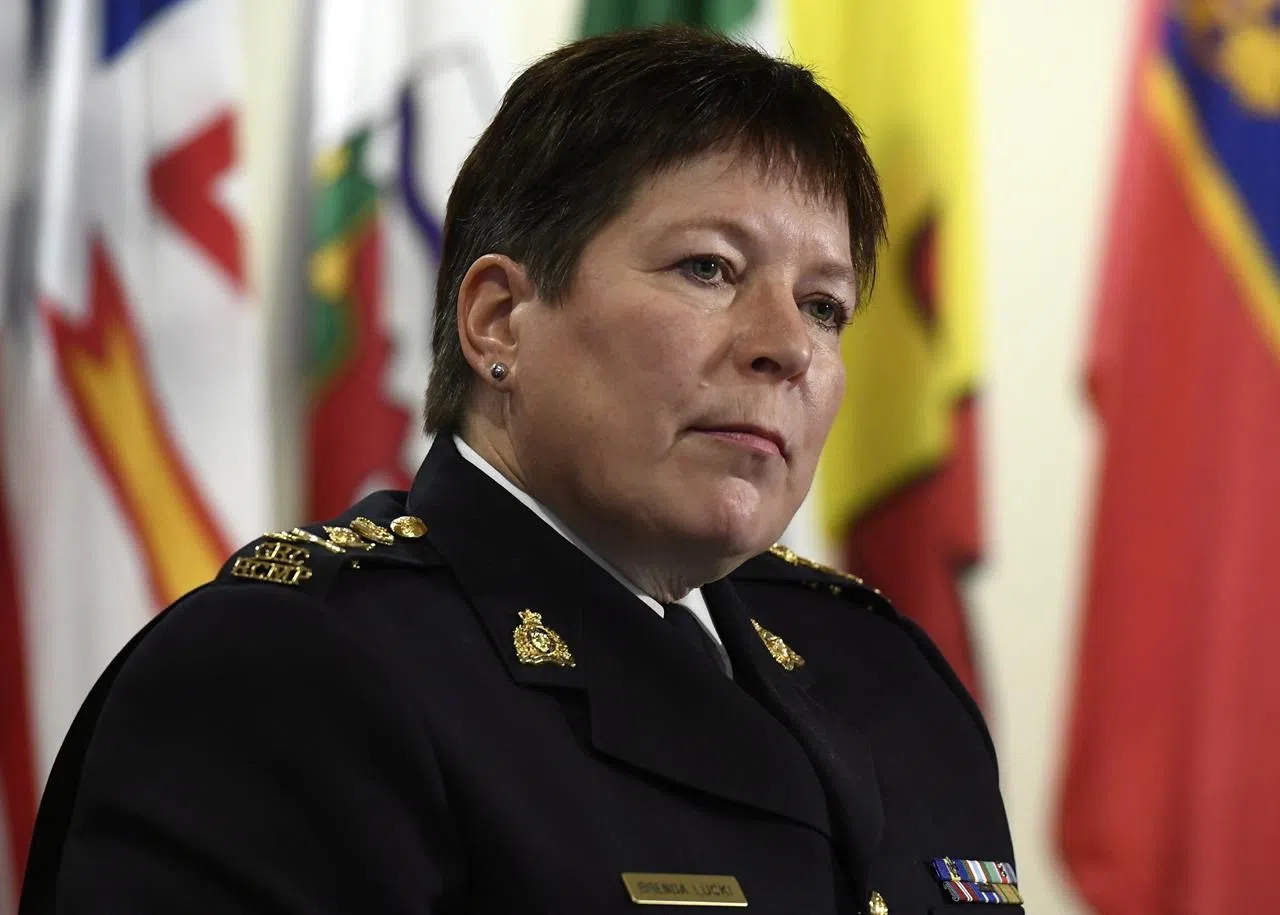
RCMP seeks names of potential victims of coerced sterilization, Lucki says
OTTAWA — The RCMP is seeking the names of potential victims of coerced sterilization procedures and wants lawyers to help in the process, RCMP Commissioner Brenda Lucki said Tuesday.
In testimony before the House of Commons health committee, Lucki said the RCMP is willing to meet with victims, adding it would be helpful if lawyers could talk to complainants about coming forward.
“The lawyers … if they were to speak with those victims and provide them the options of coming to the police, we would absolutely sit down with each and every victim that they had to look at it from a criminal point of view,” she said.
“Obviously they are not going to release their names without their consent as well. But … if we were to have those conversations, and possibly we could convince victims to come forward through the lawyers, that would be one avenue that we could explore.”
